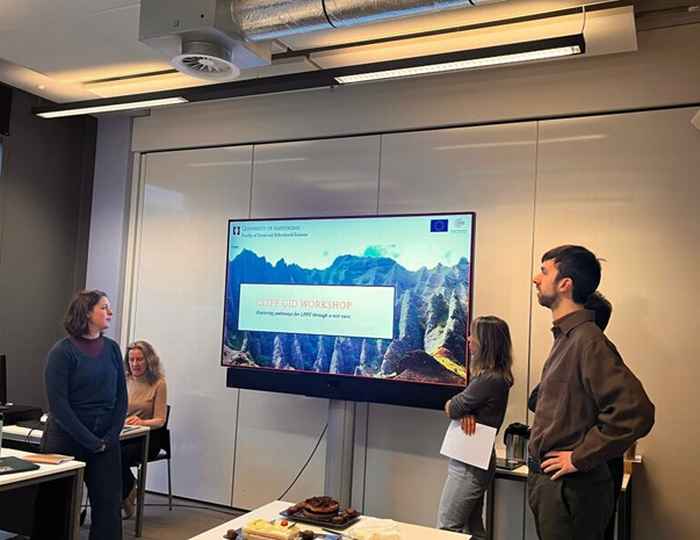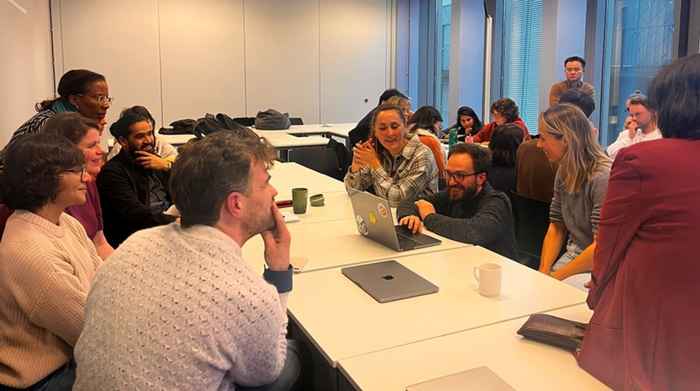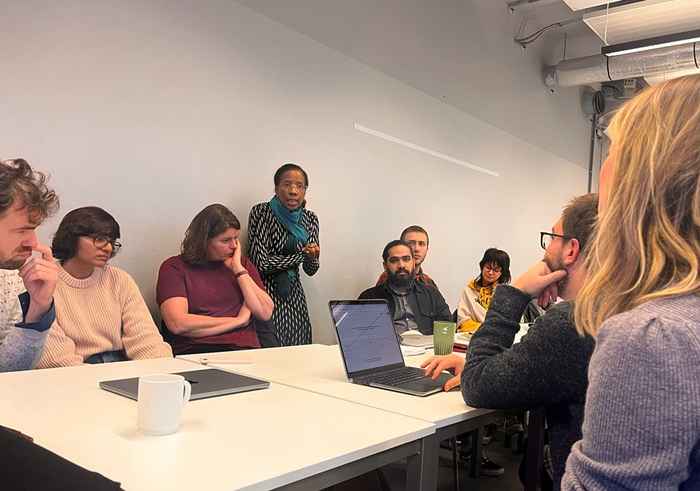Uncovering Pathways to Leaving Fossil Fuels Underground (LFFU)
A GID Workshop to Analyse Narratives and Counter-Narratives
23 April 2025

About the workshop
Held as part of the monthly Governance and Inclusive Development (GID) seminar series, the session was led by the research initiative Finding pathways to leave fossil fuels underground (CLIFF).
The event combined a presentation of the project with a collaborative exercise aimed at reflecting on equitable strategies for phasing out fossil fuel extraction. It emphasized North-South dynamics and the role of major investors in shaping the transition.
After introducing members of the CLIFF group and their individual areas of work, participants were invited to respond to a central question:
What role do major investors play in leaving fossil fuels underground, and how can shared responsibilities in the energy transition be accelerated?

Seminar Objectives and Structure
The seminar set out with three key objectives:
- Fostering knowledge exchange among diverse stakeholders,
- Developing concrete strategies for action,
- Testing new narratives around the energy transition.
The seminar was developed grounding the discussion in local expertise, where the group explored the case of Operation Phakisa and its implications for South Africa’s vast oil and gas reserves.
Through two parallel sessions, participants engaged deeply with the challenges and opportunities ahead.
Finance Group
This group explored how pension funds and philanthropic investments could drive the energy transition. Participants discussed strategies to pressure companies and governments to divest from fossil fuel projects and invest in sustainable alternatives.
Civil Society & Activism Group
This group focused on the narratives that shape public discourse around fossil fuels. Participants examined how dominant stories can hinder progress, while also identifying possibilities for mobilizing broader support for LFFU efforts.
Both groups used Miro mind maps to visually map out key actors—investment funds, energy corporations, governments—and the intricate relationships sustaining fossil fuel dependency.
Plenary Discussion: From Reflection to Action
In the plenary session, attention turned to actionable strategies:
- How can emerging narratives be translated into political leverage?
- What institutional barriers—corporate lobbying, litigation risks—must be navigated?
The workshop culminated in an open dialogue that raised a number of pressing questions:
- How can transnational LFFU movements grow stronger?
- How can climate justice be more fully integrated into these conversations?
- How can future conference sessions be designed for maximum impact?
While many found tools like Miro helpful in structuring collective thought, others called for more interactive and balanced formats that give equal weight to presentations and discussions.
Key Insights and Reflections
Throughout the workshop, participants reflected deeply on the dominant narratives and their counterpoints. Identifying structural obstacles—such as entrenched interests, institutional inertia, and the political risks of confronting the status quo—was a crucial step in refining future strategies.
These reflections will inform the CLIFF group’s next steps as they continue to work toward a more just, dynamic, and inclusive approach to leaving fossil fuels underground.

Future Steps
Beyond providing an opportunity for the CLIFF group to share their work with the wider programme, this workshop served as an important testbed for exploring innovative decarbonization strategies. Insights from the session will directly feed into planning for the ESG 2025 Workshop, where policy and investment tools to accelerate LFFU will be explored in greater depth.
The seminar reaffirmed a key insight: leaving fossil fuels underground is not just a technical or economic challenge—it is also a deeply narrative, political, and justice-driven issue. Moving forward, articulating arguments clearly, engaging with counterclaims, and building collective momentum will be essential in making meaningful progress.